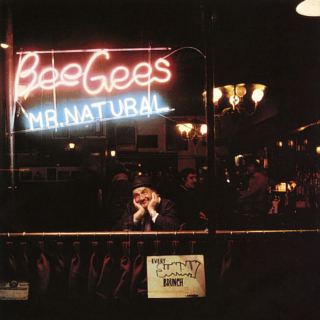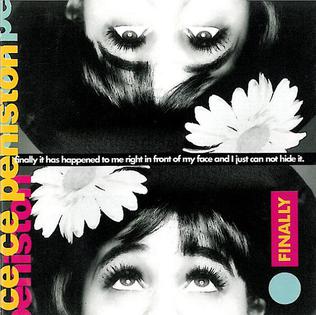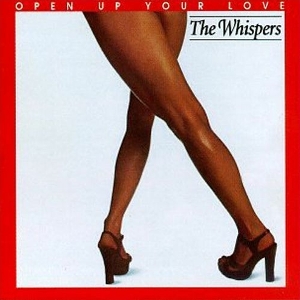
Barry Eugene Carter, better known by his stage name Barry White, was an American singer-songwriter, musician, record producer and composer.

Earth, Wind & Fire is the self-titled debut studio album by the band Earth, Wind & Fire, released in February 1971 by Warner Bros. Records. The album got to No. 24 on the Billboard Top Soul Albums chart and was certified Gold in France by the SNEP.
The Emotions are an American Grammy Award–winning soul/R&B vocal group from Chicago, Illinois. The group started out in gospel music but transitioned into R&B and disco music. The Emotions were named by VH1 as one of the 18 most influential girl groups of all time.

Maurice White was an American singer, musician, songwriter, and record producer. He was the founder, leader, main songwriter, and producer of the band Earth, Wind & Fire, and served as the band's co-lead singer with Philip Bailey. Described as a "visionary" by Vibe and a "mastermind" by Variety, White was nominated for a total of 22 Grammys, of which he won seven. He was inducted into the Rock and Roll Hall of Fame and the Vocal Group Hall of Fame as a member of Earth, Wind & Fire, and was also inducted individually into the Songwriters Hall of Fame. He additionally worked with artists such as Deniece Williams, Cher, the Emotions, Barbra Streisand, Ramsey Lewis, and Neil Diamond.

Mr. Natural is the Bee Gees' twelfth album, released in July 1974. It was the first Bee Gees release to be produced by Arif Mardin, who was partially responsible for launching the group's later major success with the follow-up album Main Course. The album's music incorporates more rhythm and blues, soul and funk and hard rock than their previous albums. The cover photograph was taken at 334 West 4th Street, Greenwich Village, New York City by Frank Moscati.
Love Unlimited was a female vocal trio that provided backing vocals for American R&B/soul singer Barry White on his albums and concert tours. They also found success with their own recordings.

Destiny's Child is the self-titled debut studio album by American R&B group Destiny's Child, released by Columbia Records and Music World Entertainment on February 17, 1998. It features the singles "No, No, No" and "With Me". It won Soul Train Lady of Soul Award for Best R&B/Soul Album of the Year due to both singles having a remix as well as having an original version. Both singles preceded the album. The album spent twenty six weeks on the US Billboard 200 chart and peaked at number sixty-seven. In the United Kingdom, it reached the top fifty, peaking at number forty-five on the albums chart due to strength of its lead single, "No, No, No". The album did go on to sell over one million copies in the United States and was re-packaged and re-released in several countries after the success of the follow-up album, The Writing's on the Wall (1999). The album was met with generally favorable reviews from music critics, including AllMusic and Rolling Stone.
"Chapel of Love" is a song written by Jeff Barry, Ellie Greenwich and Phil Spector, and made famous by The Dixie Cups in 1964, spending three weeks at number one on the Billboard Hot 100. The song tells of the happiness and excitement the narrator feels on her wedding day, for she and her love are going to the "chapel of love", and "we'll never be lonely anymore." Many other artists have recorded the song.

Rhapsody in White is the first studio album by the American soul group, The Love Unlimited Orchestra, released in 1974. It was a huge success for the group, who backed and was led by Barry White for many singles such as "I'm Gonna Love You Just a Little More Baby". Also on the album is the 1973 "Love's Theme" single, their signature song, which reached #1 on the Billboard Hot 100.

Finally is the debut album by American singer CeCe Peniston, released on January 28, 1992 by A&M Records. Prior to the release of this album, Peniston released her debut single "Finally", which topped the US Billboard Hot Dance Music Club Play chart on October 26, 1991, peaking eventually at number five on the Billboard Hot 100 and at number two in the UK Singles Chart. The album yielded two additional singles which achieved dance number one status in the US; "We Got a Love Thang", co-written by Chantay Savage, and "Keep On Walkin'", written in collaboration with Kym Sims. Both songs entered the UK Singles Chart top 10 and the Billboard Hot 100 top 20 in the US. Despite the success of the singles, the album itself climbed only to number seventy on the US Billboard 200. However, during its thirty-six weeks long presence in the chart it sold over 554,000 copies in the US. The album peaked at number ten on the UK Albums Chart. The total worldwide sales of the album surpassed 3,000,000 units. Two further tracks were released from the album which were more in the R&B field; "Inside That I Cried" charted at number ten in the US R&B chart and at number forty-two in the UK, while "Crazy Love" peaked at number thirty-one in the US and at number forty-four in the UK. The album was part of the resurgence of dance music in the United States during the mid-1990s.
Webster Samuel Lewis was an American jazz and disco composer, arranger and keyboardist.
"I've Got So Much to Give" is an R&B contemporary romantic ballad composed and recorded by popular soul artist Barry White and released in 1973. It was originally conceived by White as a single but then featured on the album of the same name, that peaked at number one on the Hot R&B Albums Chart. The song peaked at number 32 on the Billboard Hot 100 chart and charted for 11 weeks. It also reached number five on the US Billboard R&B chart and #46 Adult Contemporary. White composed and arranged both the instrumentals and vocals.
Felice Taylor was an American soul and pop singer, best known for her recordings in the late 1960s.

"Then You Can Tell Me Goodbye" is a song written by John D. Loudermilk. It was first released in 1962 by Don Cherry, as a country song and again as a doo-wop in 1967 by the group The Casinos on its album of the same name, and was a number 6 pop hit that year. The song has since been covered by Eddy Arnold, whose version was a number 1 country hit in 1968, and by Neal McCoy, whose version became a Top 5 country hit in 1996.

The Right Night & Barry White is the self-produced sixteenth album by American R&B singer Barry White, which was released in 1987 on A&M Records. The album peaked at No. 28 on the Billboard Top R&B Albums chart.

Staying Power is the twentieth and final studio album by American R&B singer Barry White, released on July 27, 1999. The album was White's first release for five years, and his only recording for the Private Music label, with whom he had signed following a four-album deal with A&M which had culminated in 1994 with the acclaimed The Icon Is Love, his most successful album since the 1970s.

The Way We Were is the thirty-second studio album by American pop singer Andy Williams, released in the spring of 1974 by Columbia Records and was a return to singing songs that his audience was already familiar with after Solitaire, his previous LP that was less reliant on covers of recent pop hits, did not perform well.
Robert Nelson Relf, was an American R&B and soul musician. Best known as half of the soul music duo Bob & Earl whose song, Harlem Shuffle was released in the US in 1963 and in the UK in 1964. It was re-released 1969 reaching No 7 in the UK charts. Relf's recording of the song "Blowing My Mind to Pieces" was written by Lou Barreto as well as being produced by Lou Barreto and Rod Bumgardner. The song became popular on the Northern soul scene in the UK in the 1970s.

Walkin' in the Rain with the One I Love was an R&B single in 1972 for the soul trio Love Unlimited, a studio group created by singer/producer Barry White. The main vocalists were female singers Glodean James, her sister, Linda James, and their cousin Diane Taylor. Glodean would eventually become White's wife in 1974; the couple would split up in 1988, though they never divorced.

Open Up Your Love is an album by The Whispers. Released in 1977, this album reached number 23 on the Billboard Soul Albums chart. This was their last album on Don Cornelius's Soul Train Records before transitioning over to manager Dick Griffey's SOLAR Records.














